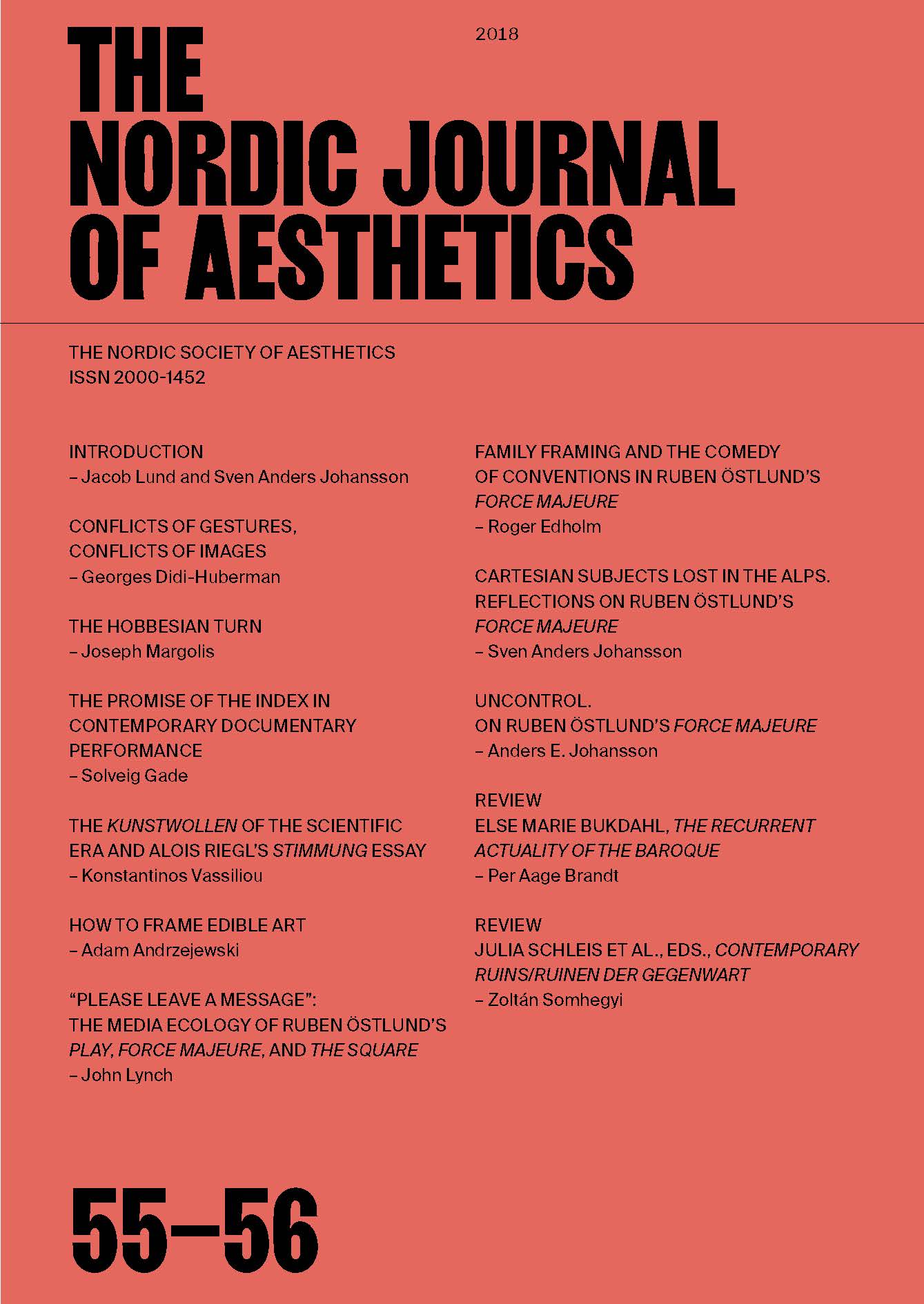THE HOBBESIAN TURN
DOI:
https://doi.org/10.7146/nja.v27i55-56.110743Abstract
The “Hobbesian turn” is an invention out of whole cloth, a device by which to oppose the usually supposed autonomy of the aesthetic, the moral, the political, and the factual; to recover the collective holism of civilizational (or enlanguaged cultural) life; to feature the existential historicity of the human career, which is incompatible with any strict universalism and all the forms of transcendentalism; hence, also, to feature the adequacy of a contingent Lebensform in collecting the affinities of creative expression and agentive commitment within the terms of human solidarity; to abandon strict universality and necessary synthetic truths; and to favour the fluxive world of pragmatist construction rather than the indemonstrable fixities of rationalism and transcendentalism. The article proceeds largely by examining aspects of Picasso’s career and the history of Western politics spanning the sixteenth century to the present.
Downloads
Published
How to Cite
Issue
Section
License
Authors who publish with this journal agree to the following terms:
- Authors retain copyright and grant the journal right of first publication with the work simultaneously licensed under a Creative Commons Attribution License that allows others to share the work with an acknowledgement of the work's authorship and initial publication in this journal.
- Authors are able to enter into separate, additional contractual arrangements for the non-exclusive distribution of the journal's published version of the work (e.g., post it to an institutional repository or publish it in a book), with an acknowledgement of its initial publication in this journal.
- Authors are permitted and encouraged to post their work online (e.g., in institutional repositories or on their website) prior to and during the submission process, as it can lead to productive exchanges, as well as earlier and greater citation of published work (See The Effect of Open Access).




